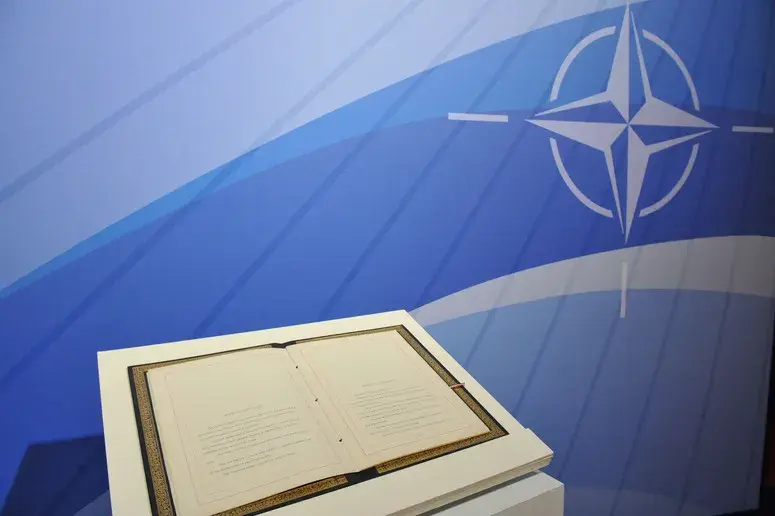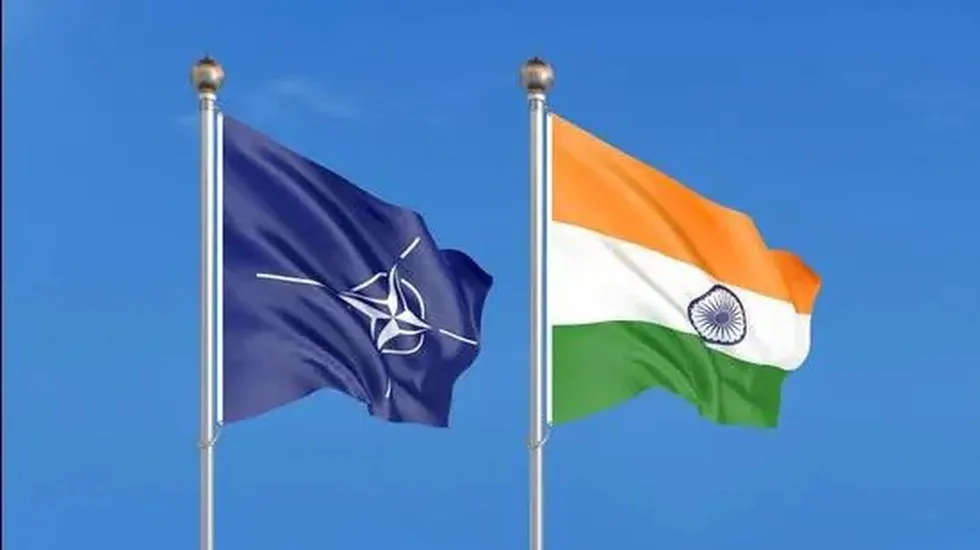Topics: GS paper 2 International Relations, International organisations, prelims
Headlines: North Altantic Treaty Organisation celebrates 75 years of Collective Defence.
Introduction
The North Atlantic Treaty Organization is a military alliance established in the aftermath of World War II. It stands as a cornerstone of collective defense in the Euro-Atlantic region, safeguarding member states against potential aggression.
Historical Background
- Officially formed on April 4, 1949, with the signing of the North Atlantic Treaty (Washington Treaty).
- Originally comprised of 12 member states, including Belgium, Canada, Denmark, France, Iceland, Italy, Luxembourg, the Netherlands, Norway, Portugal, the United Kingdom, and the United States.
- Membership has grown to 32 members, with Sweden being the latest addition in March 2024.
- It has its Headquarters in Brussels, Belgium.

Core Principles of NATO
- NATO’s foundation rests on the principles of democracy, individual liberty, human rights, and the rule of law.
- The alliance upholds the right of individual and collective defense as outlined in Article 51 of the UN Charter.
- Article 5 of the North Atlantic Treaty is the cornerstone of the alliance’s collective defense principle. It essentially states that an armed attack on one member state is considered an attack on all members.
Beyond Collective Defense:
NATO’s role has evolved beyond collective defense. The alliance actively engages in crisis management operations, including peacekeeping and stabilization efforts worldwide.
What is NATO Plus?
NATO Plus is an informal grouping that brings together NATO and five additional countries: Australia, New Zealand, Japan, Israel, and South Korea.
Objectives:
- Strengthen global defense cooperation
- Facilitate seamless intelligence sharing among member countries
- Enhance interoperability between militaries through joint exercises and training
- Address shared security threats like cyberattacks, maritime security issues, and terrorism
India in NATO Plus

NATO Plus offer India significant advantages? Let’s explore some potential benefits:
- Enhanced Intelligence Sharing: NATO Plus members exchange intelligence seamlessly, providing a crucial advantage in combating contemporary threats like terrorism and cyberattacks. India’s inclusion would strengthen this intelligence grid, allowing for a more comprehensive understanding of security risks in the Indo-Pacific region and beyond.
- Access to Advanced Military Technology: Streamlined transfer processes within NATO Plus would grant India access to cutting-edge military technology. This could include weaponry, communication systems, and other defense equipment, bolstering India’s military modernization efforts and improving its ability to address security challenges.
- Strengthened US Defense Partnership: It would solidify India’s strategic partnership with the US, leading to potentially closer military cooperation and collaboration on defense initiatives.
Challenges faced by India in joining NATO Plus
- Potential Impact on Existing Partnerships: India maintains close ties with Russia, balancing these relationships would be crucial.
- Alignment with Foreign Policy Goals: India has a history of non-alignment. Aligning with a Western-led alliance could necessitate adjustments to its foreign policy approach.

Leave a Reply
You must be logged in to post a comment.